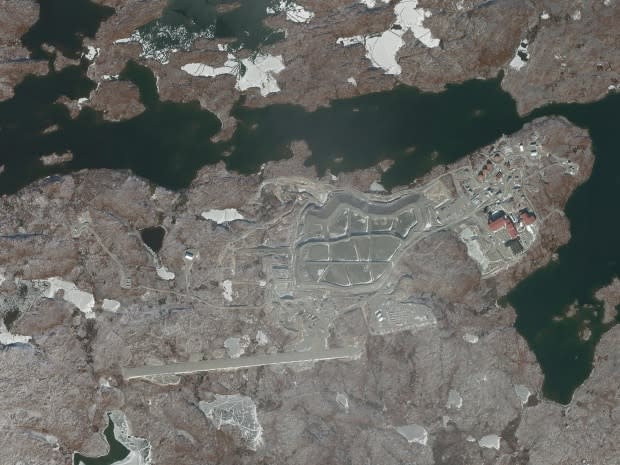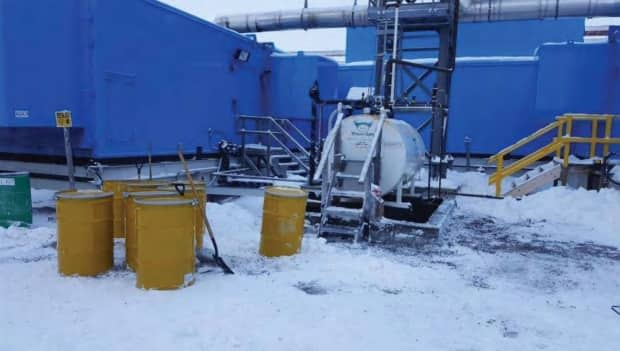Spill at De Beers mine allegedly breached the Canadian Environmental Protection Act
De Beers Inc. Canada is facing charges of breaching the Canadian Environmental Protection Act stemming from a December 2017 diesel spill that took place at the now-defunct Snap Lake mine in the Northwest Territories.
The company appeared in an N.W.T. court this week. Court documents show that De Beers is being charged with breaching regulations involving storage tank systems for petroleum products and allied petroleum products.
The allegations date to a Dec. 7, 2017 incident at the diamond mine. Initially, De Beers reported to the territory's Spill Line that at least 500 litres of diesel had spilled, according to the Department of Environment and Natural Resources.
But in a document obtained through the Mackenzie Valley Land and Water Board public registry dated Dec. 20, 2017, an employee with De Beers wrote the amount was far more than initially reported.
"An estimated volume of 5,903 litres of diesel is suspected to have been released into the environment," wrote Michelle Peters, De Beers' environment and asset superintendent for Snap Lake mine in a letter to the board.
It's unclear whether this information is connected to the charge at this time.

Details of spill
In her letter, Peters provided details of the spill and how it was managed.
According to the letter, an attendant forgot to close a valve that was left open while a tank was being refilled. Ordinarily, the refueling would be automated, but as the mine transitioned into an extended care and maintenance capacity, the tank had to be refueled manually.
Around 1 p.m. on Dec. 7, 2017, the spill was discovered. "Based on visual observations," wrote Peters, "volumes were estimated to be at least 500 litres outside of containment."
However, during clean up, a "more accurate volume estimate was determined."
The diesel had absorbed into the snow and soil. Affected snow was shoveled into drums, but it is "assumed" that much of it was absorbed into the soil, as there was no pooling or "free diesel product" observed, according to Peters.

The Snap lake mine was authorized to close by the Mackenzie Valley Land and Water Board in May 2020. The closure is expected to take eight years to clean up and five years after that to monitor, also including a two-year cushion for unexpected challenges.
Terry Kruger, a spokesperson with De Beers, issued a written statement to CBC.
"Protecting the natural world is a key pillar for De Beers Group and we demonstrate that commitment through our strong track record of environmental performance at our sites and operations across Canada," Kruger wrote.
Kruger added that the company continues to monitor the site and that "quick action was taken to clean and contain" it.
De Beers is scheduled to be back in court on Jan. 26, 2021.

